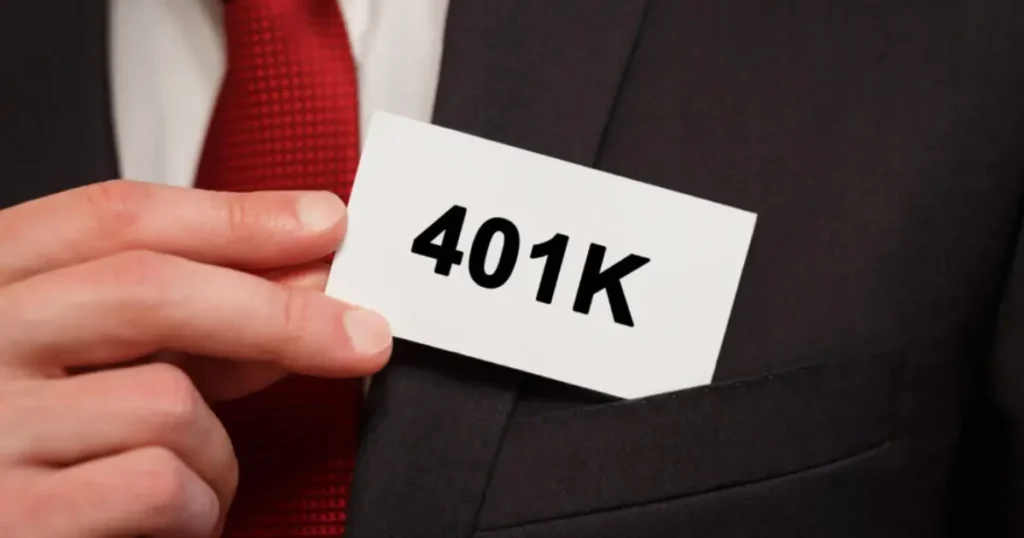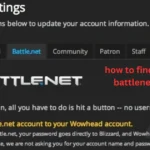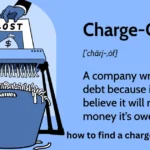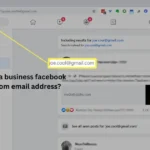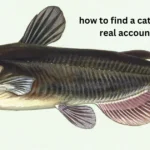Imagine this: You’re getting ready for retirement, but you can’t remember where you put all your savings from your old jobs. It’s like misplacing a valuable puzzle piece! Many people have 401(k) accounts from past employers, and over time, it’s easy to lose track of them.
But don’t worry, finding these accounts is totally doable with a bit of detective work. This article will guide you through the process step-by-step, so you can reclaim your hard-earned retirement funds.
Why Finding Your Old 401(k) Account is Important
Before we jump into the “how,” let’s talk about the “why.” Why is it so important to find your old 401(k) account?
- It’s Your Money! That 401(k) holds money you worked hard for. It’s meant to help you enjoy a comfortable retirement.
- Grow Your Savings: By finding your old account, you can either combine it with your current retirement plan or make sure it’s invested in a way that helps it grow.
- Avoid Fees: Sometimes, old 401(k) accounts have fees you might not even know about. Finding them lets you manage these costs.
How to Find a 401(k) Account From Previous Jobs: Start Your Search
Ready to start your search? Here’s a breakdown of the most effective ways to locate your lost 401(k) accounts:
Contact Your Former Employer
This is often the simplest way to find your 401(k). Reach out to your old company’s HR department or your former manager. They might have records of your plan provider and account details.
Check Your Old Paperwork
Remember those old boxes filled with documents? It’s time to dust them off! Look for any paperwork related to your 401(k), such as:
- Account statements
- Summary plan descriptions
- Enrollment forms
Use Online Resources
The internet can be a powerful tool in your search. Here are a few websites that can help:
- The National Registry of Unclaimed Retirement Benefits: This free database, run by the Department of Labor, helps connect people with their lost retirement benefits.
- The Pension Benefit Guaranty Corporation (PBGC): This federal agency keeps a database of unclaimed pensions from companies that have gone out of business.
Search Your State’s Unclaimed Property Database
Sometimes, if a 401(k) account goes unclaimed for a certain period, the funds might be turned over to your state. Check your state’s unclaimed property website; you might be surprised by what you find!
Review Your Credit Report
While not a primary source for finding 401(k)s, your credit report might list a debt owed to a 401(k) provider if you took a loan against your account. This could give you a clue about where to look.
What Information Do You Need?
To make your search easier, gather the following information before you start:
- Your Social Security number
- Dates of employment for each previous job
- Names of previous employers
- Any contact information for your old employers (addresses, phone numbers)
How to Find 401(k) Account From Previous Jobs After a Company Merger or Acquisition
Things get a bit trickier if your old company was bought by another company or merged with it. Here’s what to do:
- Contact the New Company: Start by contacting the HR department of the company that took over. They might have your 401(k) information.
- Research the Company History: Use online resources like LinkedIn or company websites to trace the history of your old employer and find out who currently owns the 401(k) plan.
What if Your Former Employer is Out of Business?
If your old company no longer exists, don’t give up! Here are some options:
- Pension Benefit Guaranty Corporation (PBGC): As mentioned earlier, the PBGC takes over the pension plans of companies that go out of business. Check their website to see if they have your plan.
- State Unclaimed Property Offices: Your 401(k) funds might have been transferred to your state’s unclaimed property office.
- National Registry of Unclaimed Retirement Benefits: This database can help you locate your funds even if your former employer is no longer around.
Rolling Over Your Old 401(k)
Once you find your old 401(k), you have a few choices:
- Leave it where it is: If you’re happy with the investment options and fees in your old plan, you can leave it as is.
- Roll it over to your current employer’s plan: This can make managing your retirement savings easier.
- Roll it over to an IRA: This gives you more control and investment choices.
| Option | Pros | Cons |
|---|---|---|
| Leave it as is | Simple, no action needed | May have limited investment options and higher fees |
| Roll to 401(k) | Easier management, potential for lower fees | May still have limited investment choices compared to an IRA |
| Roll to IRA | More investment choices, greater control over your money | Requires more research and decision-making on your part |
Important Tips for Managing Your 401(k)s
- Keep Good Records: Always keep track of your 401(k) accounts, including account numbers, plan providers, and contact information.
- Consolidate Your Accounts: If you have multiple 401(k)s, consider consolidating them to simplify management.
- Review Your Investments: Make sure your 401(k) is invested according to your risk tolerance and retirement goals.
How to Find Your 401(k) Account From Previous Jobs: A Summary
Finding your lost 401(k) accounts might seem daunting, but it’s a crucial step in securing your financial future. By following the steps outlined in this article, you can track down your retirement savings and make sure your money is working for you. Remember to be patient, persistent, and organized in your search. Your future self will thank you!
FAQs
Can I withdraw money from my old 401(k)?
This depends on the rules of your specific plan. You might be able to take a loan or withdraw money, but there might be taxes and penalties. It’s best to talk to a financial advisor.
What happens to my 401(k) if I can’t find it?
Your money won’t disappear! It will remain in the account, but it might be harder to manage and grow if you don’t know where it is.
Is there a deadline for finding my old 401(k)?
There’s no deadline for claiming your 401(k), but the sooner you find it, the sooner you can start making decisions about it.
Should I hire a professional to help me find my 401(k)?
If you’re having trouble finding your account, you can hire a financial advisor or a service that specializes in locating lost retirement accounts.
How can I prevent losing track of my 401(k) in the future?
Keep thorough records of all your retirement accounts, including account numbers, plan providers, and contact information. You can also consider consolidating your accounts to make them easier to manage.

